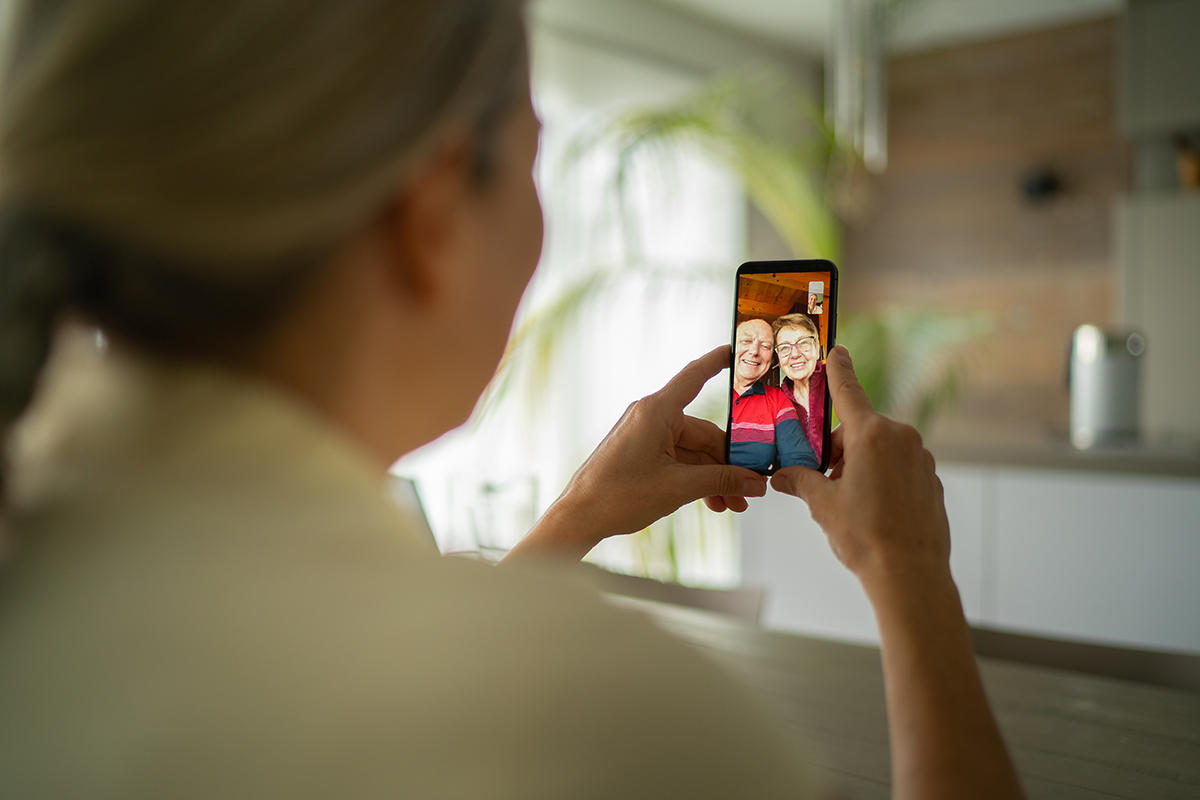Coping with loneliness during lockdown

Social distancing and self-isolation are important to curb the spread of Covid-19. But limited human contact during lockdown can have a significant impact on our mental wellbeing, particularly with feelings of loneliness. Some of us rely on the small day-to-day interactions that give us a sense of connection, such as, buying a coffee, going to work or even going to the gym. However, self-isolation and social distancing take away the little connections we make as people are forced to stay home and only leave the house for exercise or for essential travel.
The good news is social distancing and self-isolation does not mean being alone. Here are our tips on how to stay engaged and connected with others to keep positive and mentally healthy.
Stay in virtual contact
Technology has become an important source of keeping in touch during these strange times. While meeting up with family and friends may not be possible right now, you can stay in touch using your mobile phone, tablet or computer. Picking up the phone and calling a family member or friend can help reduce feelings of isolation and make you feel more connected just by hearing someone else’s voice.
Download apps and chat, share updates and pictures to keep your spirits up when things are tough. You can also set up group video chats on Skype or Zoom to pretend you are catching up at a public space, even when you are at home.
Attend a virtual tour or event
Local and international attractions such as zoos and museums are offering opportunities to enjoy what they offer digitally and best of all, for free. Here are some you can visit now:
- Natural History Museum Virtual Tour
- National Gallery Virtual Tour
- Vatican Museum Virtual Tour
- Musée d’Orsay Virtual Tour
Join or start an online group
Being in a group with other people that share a mutual interest can help with feelings of loneliness. There are lots of different groups out there, from book clubs to choirs. You could also create your own group. Have a look at these options:
- Virtual Choirs on the TimeOut website
- National Centre for Writing Book Club
- Classical-Music’s virtual orchestra, choirs and music masterclass
- Creativity 4 Wellbeing Art Group
Sign up to a telephone befriending service
Various organisations offer a befriending service where someone will call you to see how you are doing and for a general chat. It is free and the interaction will help ease the feelings of loneliness. Visit the People First Info website for a list of organisations offering a telephone befriending service.
Listen to the radio
Hearing the voice of a friendly and familiar presenter can be particularly comforting if you are on your own. And knowing that lots of other people are out there listening along too can help foster a sense of wider social connection. You may get the same comfort from listening to podcasts or audiobooks.
Plan home-based activities
If you do not have access to a phone or the internet, distraction techniques can help decrease feelings of isolation and loneliness. Use this time to try new and exciting activities you have always wanted to try but have not had time to.
Things you could do include:
- Reading
- Picking up a new hobby or learning a new skill, such as, knitting, drawing or gardening
- Learning a new language using apps such as Duolingo or explore FutureLearn’s language courses
Consider goals you want to achieve so you can use this time productively.
This story was originally published in the Spring/Summer 2020 Community Living Well magazine. It has been edited for website purposes. Subscribe today to receive mental health and wellbeing tips straight to your inbox, four times a year!
Refer to the Community Living Well service here.
Author: Michelle Jackson
Posted on: 16th June 2020



